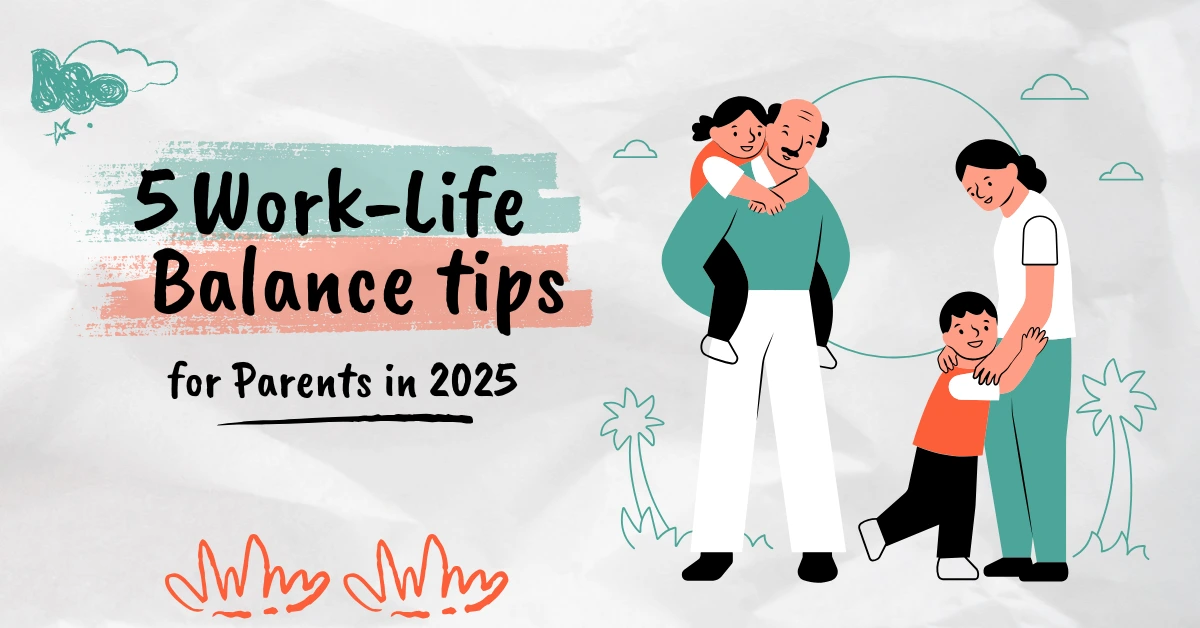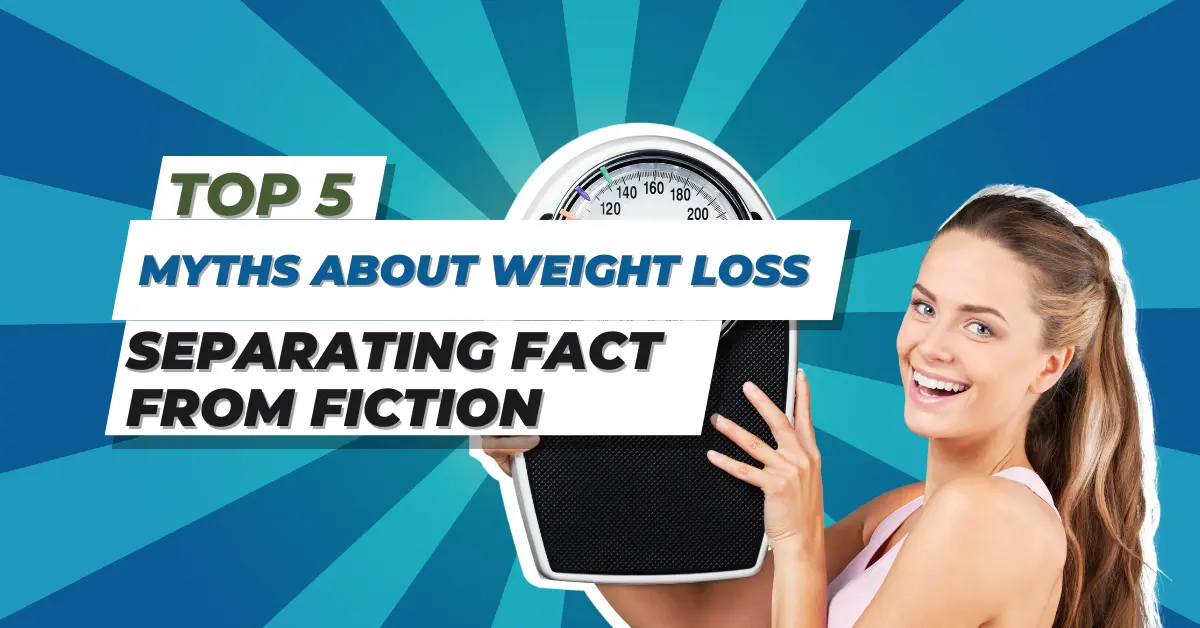
Top 5 Myths About Weight Loss: Separating Fact from Fiction
- 104
- 0
- 0
There are many myths about weight loss because people often look for quick and easy solutions. Misleading information spreads through social media, advertisements, and even word of mouth, leading to confusion. Companies may promote fad diets, miracle pills, or extreme workouts, promising fast results that aren’t always realistic or healthy. These myths can also arise from misunderstandings about how the body works. It’s important to focus on reliable, science-based advice, as successful weight loss is about a balanced diet, regular exercise, and healthy lifestyle habits over time.
Top 5 Myths About Weight Loss
Many people want to lose weight, but there’s a lot of wrong information out there. Let’s look at five common myths about weight loss and learn what science tells us.
Myth 1: You Must Cut Out All Carbs to Lose Weight
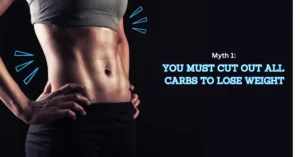
This is one of the biggest misunderstandings about weight loss. The truth is, you don’t need to completely remove carbohydrates from your diet to lose weight. Here’s what you need to know:
- Not all carbs are the same. Whole grains, fruits, and vegetables contain healthy carbs that your body needs for energy.
- The real problem comes from processed carbs like white bread, sugary drinks, and candy.
Your body needs carbohydrates for:
-
- Brain function
- Energy during exercise
- Proper digestion
- Maintaining stable blood sugar
What matters is choosing the right types of carbs and watching your portion sizes. Pick whole grain bread instead of white bread, brown rice instead of white rice, and eat plenty of fruits and vegetables.
Myth 2: You Have to Workout for Hours Every Day

Many people think they need to spend countless hours at the gym to lose weight. This isn’t true, and here’s why:
- Weight loss is mostly about what you eat. Research shows that diet has a bigger impact on weight loss than exercise alone.
- Short, effective workouts can be just as good as long ones. Even 30 minutes of exercise a day can help you lose weight.
- What matters most is being consistent with your exercise routine.
- The best exercise plan is one you can stick to long-term.
Good exercise options include:
- A 30-minute daily walk
- Three 45-minute gym sessions per week
- Short home workouts using just your body weight
- Swimming, cycling, or any activity you enjoy
Myth 3: Eating Late at Night Causes You to Gain Weight
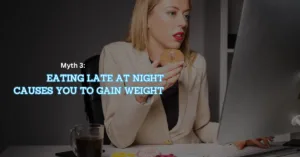
Many people think eating after a certain time automatically leads to weight gain. The science shows this isn’t exactly true:
- What matters most is how many total calories you eat during the whole day, not when you eat them.
- Your body doesn’t automatically turn food into fat just because you eat it at night.
- However, late-night eating can be a problem if it leads to eating extra calories you don’t need.
Tips for managing nighttime eating:
- Pay attention to your daily calorie intake
- If you’re hungry at night, choose healthy snacks
- Keep portion sizes reasonable
- Try to eat your last meal at least 2-3 hours before bed for better sleep
Myth 4: You Need to Skip Meals to Lose Weight

Skipping meals might seem like an easy way to cut calories, but it usually backfires. Here’s why this approach doesn’t work:
- When you skip meals, you’re more likely to overeat later
Missing meals can:
- Slow down your metabolism
- Makes you feel tired
- Lead to poor food choices when you get too hungry
- Cause your blood sugar to drop
Better approaches include:
- Eating regular, balanced meals
- Planning healthy snacks between meals
- Listening to your body’s hunger signals
- Keeping healthy food options readily available
Myth 5: All Calories Are Equal
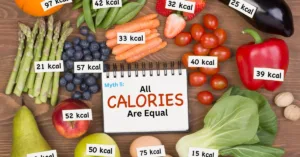
While counting calories can help with weight loss, not all calories provide the same nutritional value. Here’s what you should know:
- 200 calories from potato chips affect your body differently than 200 calories from chicken and vegetables
Different foods can:
- Make you feel full for different lengths of time
- Affects your blood sugar differently
- Provide different nutrients
- Impact your metabolism in various ways
Better ways to think about calories:
- Focus on nutrient-dense foods
- Include protein in your meals to feel full longer
- Eat plenty of fiber-rich foods
- Select whole, unprocessed foods most of the moment
The Truth About Weight Loss
Now that we’ve busted these myths, here’s what works for weight loss:
- Create a small calorie deficit through better food choices and portion control
Eat a balanced diet with plenty of:
- Fruits and vegetables
- Lean proteins
- Whole grains
- Healthy fats
- Move your body regularly in ways you enjoy
- Get enough sleep (7-9 hours per night)
- Drink plenty of water
- Make changes you can stick with long-term
Remember that healthy weight loss takes time. Aim to lose 1-2 pounds per week, which is safe and more likely to stay off. Quick fixes and extreme diets usually don’t work in the long run.
Final Thoughts
Healthily losing weight isn’t about following strict rules or believing in myths. It’s about making small, sustainable changes to your eating and exercise habits. Focus on developing healthy habits you can maintain over time, rather than looking for quick fixes.
Pay attention to how different foods make you feel, and find physical activities you actually like doing. This will make it much easier to stick to your weight loss plan and maintain a healthy weight over time.
Remember that everyone’s body is various, and what functions for one person might not work for another. If you’re having trouble losing weight, talk to your doctor or a registered dietitian who can give you personalized advice based on your specific needs.
The most important thing is to make changes you can stick with for the long term. This way, you’ll not only lose weight but also keep it off and improve your overall health.
FAQs
Are crash diets effective for weight loss?
No, crash diets may cause quick weight loss, but it’s mostly water weight. They can be harmful to your health, and the lost weight often returns once you resume normal eating.
Can certain foods burn fat quickly?
No food can magically burn fat. While some foods boost metabolism slightly, weight loss comes down to a balanced diet, regular exercise, and consuming fewer calories than you burn.
Is ignoring meals a good way to lose weight?
Skipping meals might lead to weight gain because it slows your metabolism. Eating regular, balanced meals helps control hunger, maintains energy, and supports a healthy weight loss journey.
Can weight loss pills give quick results?
Most weight loss pills don’t provide long-term results. They might cause side effects and aren’t a replacement for a healthy diet and exercise. Always consult a doctor before considering such supplements.
Does exercising more mean you can eat anything?
Exercise helps with weight loss, but eating unhealthy foods can still lead to weight gain. For effective results, it’s important to combine regular exercise with a balanced, nutritious diet.
Also Read:
5 Types of Healthy Diet Food
7 Healthy Diet Plans to Improve Your Wellbeing
References:
https://www.niddk.nih.gov/health-information/weight-management/myths-nutrition-physical-activity
https://pmc.ncbi.nlm.nih.gov/articles/PMC3606061/
https://pmc.ncbi.nlm.nih.gov/articles/PMC4229150/
Disclaimer: The details provided in this writing are for educational purposes only and should not be considered medical guidance. Always consult with a healthcare professional for personalized guidance on weight loss and health-related concerns.
Related post

7 Health Benefits of Assam Tea
